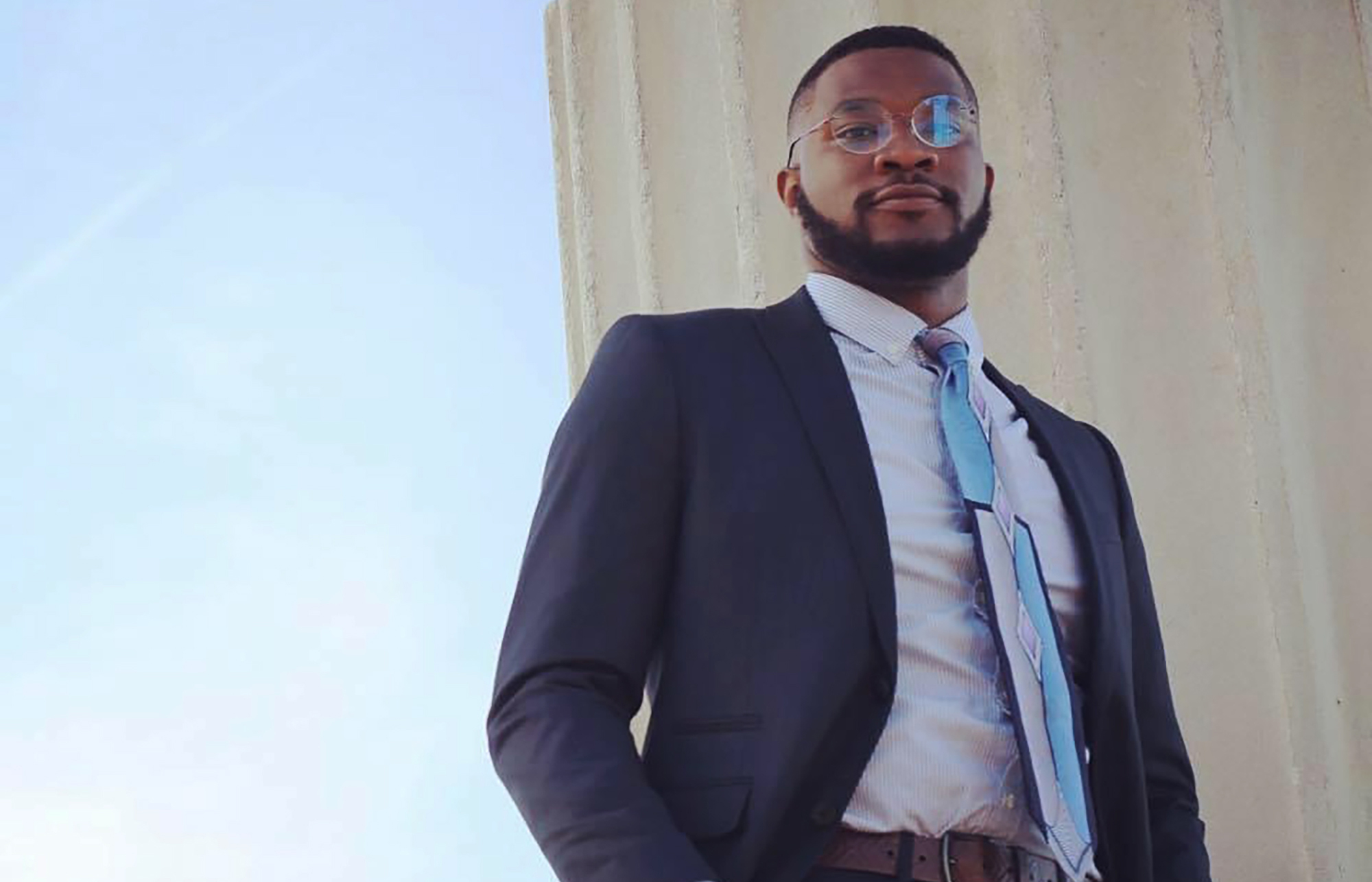In his current position as a policy adviser for Third Way, Chazz Robinson B’16 says he’s always thinking about low income students, racial minorities, anyone who could be left out of the conversation.
He can’t forget them, because he once was them.
As a young man growing up in poverty in inner city Milwaukee, Robinson describes himself as someone who was too quick to anger and frequently in the principal’s office. School wasn’t a priority.
“My upbringing, in a tough environment, was rough around the edges,” he said. “I didn’t even know a world existed outside of my neighborhood.”
Ironically, in high school, Robinson transferred to a charter high school, primarily so he didn’t need to walk so far from his home, and it ended up being a step in the right direction. There he was required to wear a dress shirt and tie every day, and for the first time, his grades became a priority.
Suddenly, college seemed like an option as a way up and a way out.
“I was the first one in my neighborhood to go to college, to get away,” he said. “It was a big weight to carry but was something I wanted to do. It changed my life, just leaving and going to Saint Mary’s.”
For two years as a young teen, Robinson said his family moved up to middle class, back when his mother’s job as a realtor was flourishing. Then, with a 2008 recession, they lost everything. “We had moved to a different neighborhood. We had a nice rec room in the basement,” he said. “It was enough of a taste. When the recession hit and we lost it all, I was still motivated to get that back.”
He credits Saint Mary’s for accepting him and for giving him the confidence and support he needed to further his studies and his career.
“Education changed my life, short and sweet,” he said. “I didn’t really have any confidence, didn’t know if I could do a degree in general, didn’t know if I could do college. At Saint Mary’s, I had the supportive faculty and staff to encourage me and build confidence in me, saying ‘You can do this!’ After a while, you start to believe it a little bit. Saint Mary’s was big for me, because it was so close knit. Every office knew me.”
Robinson also credits his mother for instilling the importance of education in him. In fact, she started college at the same time as he did; the two graduated on the same weekend.
And now, the young man who once dreaded school has never left school — earning a B.A. in Psychology from Saint Mary’s in 2016, and an M.Ed. in Higher Education Administration from the University at Buffalo. He then went on to receive the Arthur A. Schomburg Fellowship and become a Presidential Fellow at the University at Buffalo, where he is currently completing his Ph.D. in Educational Leadership and Policy.
At Saint Mary’s, Robinson studied psychology because he was fascinated by human behavior. “I used to wonder why people did the things they did and think the things they think,” he said. “I enjoyed learning how our environments play a big role in the things we accomplish. “
His background in psychology and in education are pairing well in his new position at Third Way, in which he is working to improve student outcomes, particularly for low-income students. Third Way is a national think tank which provides information to legislators and federal policy makers. Its website describes the organization as “fighting for opportunity, so everyone has the chance to earn a good life; progress on social issues, so all have the freedom to live the lives they choose; and security, so we are protected from 21st century global threats.”
His most recent research has been on graduate student debt. He is delving into topics like the true return on investment for graduate students and for taxpayers. Seven months into his job, he’s learning more about the intensive political divide. “No one size fits all in this work,” he said. “That’s probably the hardest pill to swallow. There’s not a policy or bill in this world where everybody says, ‘We all love it.’ ”
He puts his psychology knowledge to good use regularly. “It’s important to question why someone, even those people you are not fond of, feel the way they do. People think how they think based on how they are raised, their environment. People may be different from me politically and racially, and we can still have a good conversation. I might not agree with you, but I can understand your perspective.”
It all starts with a conversation, and Robinson wants other youths to know he’s there for them. “Now when people reach out to me, it’s a full circle moment,” he said. “Those are very dear to my heart, because people were there for me.”
